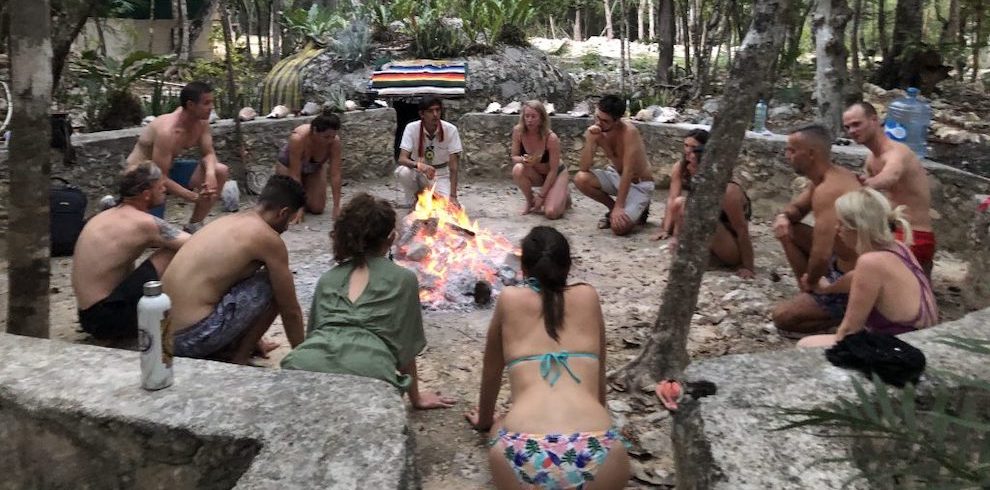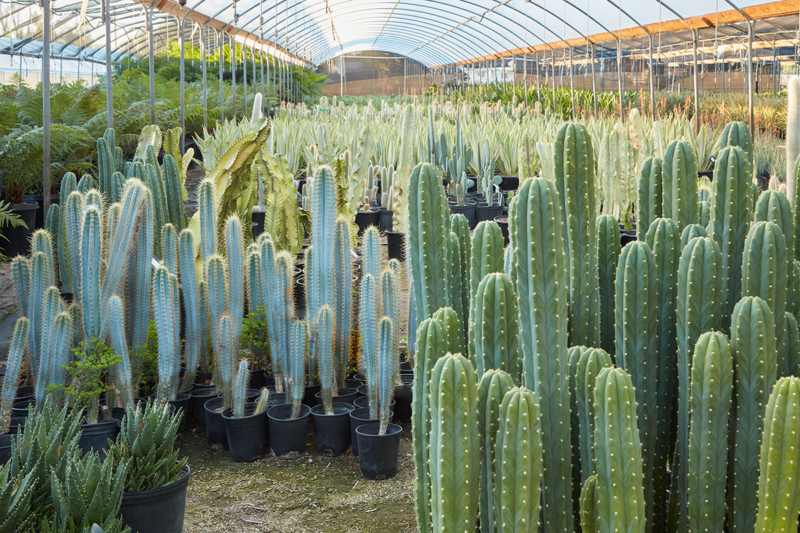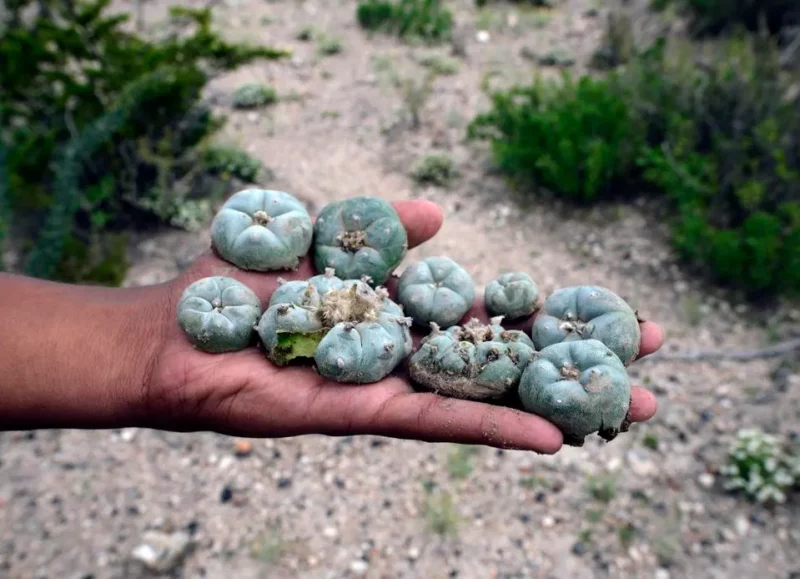
San Pedro Cactus and Peyote Legality by Country
San Pedro cactus and Peyote are hallucinogenic cacti. Mescaline, a natural psychedelic compound in their composition, gives them their characteristic psychoactive properties. When used under the guidance of trained professionals, they can have several benefits, including reducing symptoms of anxiety, depression, and PTSD, freeing people from addiction, and more. Here, you’ll learn everything you need to know about the San Pedro cactus and Peyote legality by country.
Where Is San Pedro Cactus Legal?
Although both San Pedro and Peyote contain mescaline, they’re quite different and have distinct legal classifications depending on the country.
Here, you’ll learn where San Pedro cactus is legal and under what circumstances.

Canada
In Canada, most psychedelics are illegal Schedule 3 substances.
San Pedro cactus and mescaline are both listed as such. However, it’s legal to grow San Pedro for ornamental purposes.
Czechia
In Czechia, formerly known as the Czech Republic, the cultivation, possession, sale, and transport of San Pedro cactus was legalized in 2012.
Germany
In Germany, the cultivation, possession, sale, and transport of San Pedro cactus is legal.
However, mescaline is a controlled substance under Anlage I BtMG, meaning it’s illegal to manufacture, possess, import, export, buy, sell, procure, or dispense it without a license.
Italy
In Italy, it’s legal to cultivate, possess, sell, and transport San Pedro and other psychedelic cacti, except Peyote.
Mescaline is illegal under Table 1 of Italy’s Tabelle delle sostanze stupefacenti e psicotrope.
Mexico
In Mexico, the San Pedro cactus and Peruvian Torch aren’t mentioned in the Ley General de Salud, meaning they’re legal — unlike mescaline and Peyote.
The Netherlands
In the Netherlands, San Pedro and other psychedelic cacti are legal for sale, possession, transport, and cultivation. Extracted mescaline isn’t.
New Zealand
In New Zealand, it’s legal to cultivate San Pedro cactus and other psychoactive cacti, like Peyote and Peruvian Torch, but only for ornamental purposes.
Peru, Bolivia, and Ecuador
Peru, Bolivia, and Ecuador are the only countries where San Pedro and similar cacti, are 100% legal for any purpose.
In fact, they’re not seen as a ‘drug’ in these Andean nations, but as medicine and allies. Psychedelic cacti are an integral part of these countries’ culture.
Portugal
In Portugal, the possession of small amounts and consumption of all drugs were decriminalized in 2001 — and that includes San Pedro cactus.
Besides, it’s legal to grow and sell these cacti for ornamental purposes. However, it’s illegal to process them (e.g., extracting mescaline, drying them for consumption, etc.).
Slovenia and Sweden
In Slovenia and Sweden, it’s legal to possess, grow, import, transport, and sell San Pedro and other psychoactive cacti. Still, extracting mescaline from them is illegal.
Thailand
In Thailand, you can legally buy, own, and grow San Pedro. However, mescaline is a controlled substance, meaning the extraction, possession, and recreational use are illegal.
Ukraine
In Ukraine, San Pedro cactus and Peyote were excluded from the list of illicit drugs in 2012, meaning they’re now legal.
The United Kingdom
In the UK, all psychedelic cacti are legal for ornamental purposes.
However, preparing them for consumption as a hallucinogenic is illegal. This includes drying or cutting them into edible bits, for example.
San Pedro Cactus Legality in the US
In the US, it’s legal to buy, sell, own, and grow San Pedro for ornamental purposes. But it’s illegal to dry it, turn it into a brew, or process it in any other way for consumption.
Peyote and mescaline are Schedule I drugs under US federal law. However, the American Indian Religious Freedom Act of 1994 legalized the harvest, possession, cultivation, and consumption of Peyote for religious purposes.
In addition, some states, counties, and states have passed their own laws regarding psychedelics. For example, Seattle decriminalized psychedelics, including non-Peyote-derived mescaline, in 2021.
Where to Do Peyote Legally
One of the key differences between San Pedro and Peyote is that the latter often contains a higher concentration of mescaline.
For this reason, Peyote is legal in even fewer countries. Here’s where to do Peyote legally:
Canada
Unlike San Pedro, Peyote is excluded from Canada’s Schedule 3 controlled substances list, meaning it’s legal to grow, sell, and consume despite containing mescaline.
This exception for Peyote is linked to its historical importance to Indigenous communities.
Czech Republic
In the Czech Republic, it’s been legal to consume and possess small amounts of several drugs, including ecstasy and cannabis, since 2010. In 2012, those laws were extended to psychedelics, including Peyote.
Peru, Bolivia, and Ecuador
Similarly to San Pedro, Peyote isn’t considered a drug in these Andean countries.
You can legally purchase, possess, sell, cultivate, and consume hallucinogenic cacti in Peru, Bolivia, and Ecuador.

Portugal
All drugs, including Peyote, have been decriminalized in Portugal since 2001.
Curiously, although mescaline is also decriminalized, it’s illegal to extract it from psychedelic cacti and so is drying them or preparing them for consumption in any way.
Ukraine
Much like San Pedro, Peyote was removed from Ukraine’s controlled drugs list in 2012, meaning it’s now legal.
The USA
As we mentioned above, you can do Peyote legally in the US in the context of religious ceremonies.
However, in Idaho and Texas, only natives enrolled in the Native American Church can use this cactus.
In Arizona, on the other hand, anyone can use it for religious or spiritual purposes — its legality isn’t confined to Native American or ceremonial practices.
Key Takeaways on San Pedro Cactus and Peyote Legality by Country
The legality of San Pedro cactus and Peyote is complex and varies from country to country.
Still, these psychedelic cacti can bring about a myriad of benefits, including improved mental well-being, spiritual exploration, addiction recovery, and personal growth.
Now that you know where they’re legal, take a look at our database of psychedelic retreats where you can find vetted San Pedro and Peyote retreat centers.

Comments